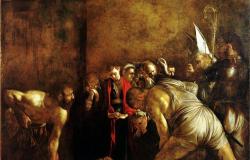“This book doesn’t work. It must be destroyed.”
Gabriel Garcia Marquez
Let us refer to the prologue written by the children Rodrigo And Gonzalo Garcia Barcha and to the meticulous, extensive note from the curator and editor Cristóbal Pera to understand the reasons – evidently not only emotional – which led the family to disregard the wishes of Gabo (Marquez’s nickname) on the tenth anniversary of his death, publishing See you in August.
You will thus be able to learn about the tiring artistic and editorial gestation, which began in March 1999 with the announcement of a novel composed of five stories with the same protagonist. This should have been, according to the writer’s intentions, the first of a cycle of three dedicated to the loves of mature people.
Márquez was afflicted in the last years of his life by a gradual, painful loss of memory:
“At the same time my raw material and my instrument. Without her there is nothing.”
So he writes in the prologue and he was too demanding of himself a writer to be wrong. The plot suffers from logical inconsistencies, one of which is particularly glaring, compromising the shocking ending and the splendid narrative intuition, the core of the story. However, in our opinion, these inconsistencies do not prevent his talent from shining, even at times. AND See you in August it must be read. Absolutely.
The plot
Fifty-year-old Ana Magdalena Bach – shoulder-length Indian hair, topaz eyes, “dark Portuguese eyelids and molasses-colored skin on the face of an autumnal mother” – is in a constant battle (won) with the mirror and with the regret of literary studies abandoned ones that fuel readings that are as passionate as they are heterogeneous. She goes from Bram Stoker to Borges, from Ray Bradbury to Bioy Casares and sentimental novels, “better if long and unfortunate”.
See you in August
Every 16th of August, since her mother asked to be buried there eight years earlier, Ana Magdalena Bach leaves her city – indefinite, tumultuous South American Macondo crossed by decrepit buses full of poor people, with the statue of the Libertador with the sword brandished against the sky – to reach a Caribbean island.
It is a destitute country, with houses made of wood, reeds and mud, “streets of burning sand, beaches of golden flour” and the degradation of mutilated fishermen and naked children that clashes with the first starry luxury resorts. The motor launches are replaced by modern ferries equipped with a ritual orchestra singing mambo, salsa and tourist rumbas.
Ana Magdalena does not change the bunch of gladioli placed on the tomb of the poor cemetery of leafy bushes and fiery stones among which iguanas wander, in which the ritual conversation with the mother takes place. Here she makes a provisional assessment of the months that have passed, of the lives of her son – first cellist of the National Symphony Orchestra – and of her daughter, a real thorn in the side of the family, in love with a jazz trumpeter.
Hotels change
From the dilapidated motel of the early days “with a view of the burning lagoon where the herons glide motionlessly”, where the old, now blind pianist played sad, sweet and sedating boleros on a piano older than him, we move on to the intimate faux-rustic bungalow, immersed in an almond tree forest. Finally to the suites of the futuristic Carlton, a “precipice of glass overlooking the sea”, with intimidating sound warnings in the non-smoking rooms. The Jacuzzi has a multifunctional electronic keyboard and its price is equal to a quarter of his teacher’s salary.
And men change
Because, after thirty years of “crazy”, imaginative, never routine marital intimacy with a brilliant orchestra conductor – sporting champion of everything, critic, magician, chess player with a tendency (he confesses) to seduction – the devoted wife seeks and is sought by men. At the peak of summer she transforms into a mischievous, cheerful woman, “beautiful and free like an Aztec queen” to (re)find the irrepressible drive of her passionate femininity.
From time to time he receives caresses, flattery, even a twenty dollar bill which, amidst anger, shame and frustration, will continue to burn like live embers in the heart: “frame it like a trophy or destroy it to exorcise its unworthiness? Of course don’t spend it.”
Thanatos and not just eros on the trail of a man who never knows how or wants to lie, the journeys give her that satisfying, deep and solid security that Ana has never truly possessed and which so tenaciously links her to her mother, a Montessori teacher “with a golden and with few words.” Here is the hidden secret and the intriguing idea of the plot See you in August which the narrative inconsistency mentioned – and about which we will not reveal anything – fatally undermines it.
Poised between decorum and temptation, warnings of conscience and calls of desire, he will encounter cowards, inhibited, distinguished and good-hearted, seductive, tender and brutal, too or very little good, greedy for compassion or only for his body, capable of speaking to hide and, a moment later, crying like children. But she will still give herself to each one through the pages of an imperfect book which also reveals mysteries, explosions, inconsistencies, hypocrisies and the inevitability of love. In its complexity this confirms the author’s iconic and transversal theme One hundred years of solitude together with the unmistakable lyrical signature of his style, faithfully rendered by the impeccable and empathetic translation of Bruno Arpaia.
And “the sea is asleep, the sky incessant, the moon sad and chimerical, the frantic downpours, the skin rocky”.






